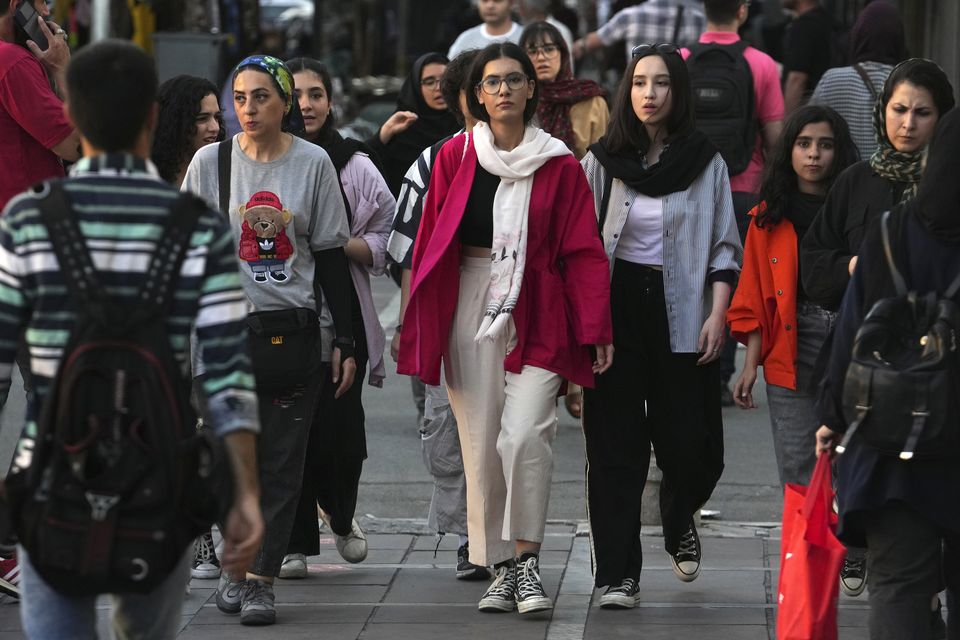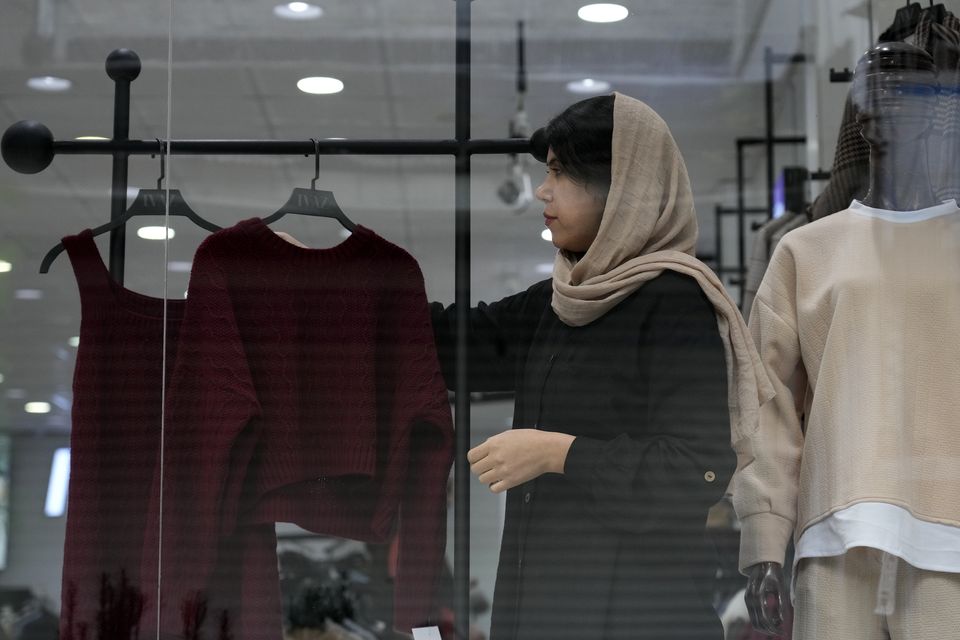Iran has paused the process of implementing a new, stricter law on women’s mandatory headscarf, or hijab, an official said.
Many believe the bill could have reignited the protests that engulfed the Islamic Republic after the 2022 death of Mahsa Amini.
The controversial law, which was approved by the parliament in September 2023, will not be sent to the government as planned this week, according to one of the country’s vice presidents.
Iranian women, some without wearing their mandatory Islamic headscarves, walk in downtown Tehran (Vahid Salemi/AP)
The development effectively means that Iran has halted enacting the legislation.
The law levies harsher punishments for women who refuse to wear the hijab and for businesses that serve them, penalties previously rejected by Iran’s reformist President Masoud Pezeshkian as he tries to restart talks with the West over sanctions imposed on Iran over its nuclear programme.
“According to the discussions held, it was decided that this law will not be referred to the government by the parliament for now,” Shahram Dabiri, the vice president in charge of parliamentary affairs, was quoted as saying in an interview Monday with the pro-reform Ham Mihan daily.
The decision to halt the legislation — at least temporarily — was reached by top executive, legislative and judiciary bodies, Mr Dabiri also said.
At the moment, it is “not feasible to implement this bill”, he added, without elaborating.
Had the bill passed to the government, Iran’s president would have had little room to manoeuver.
By law, he is required to endorse the bill within five days, after which it would have taken effect in 15 days.
The president has no authority to veto it.
Mr Pezeshkian could try to convince Iran’s 85-year-old Supreme Leader Ayatollah Ali Khamenei, who has final say on all matters of state, to halt the bill.
If the bill had been enacted, Mr Pezeshkian could also refuse to act on it or urge police not to enforce it, setting up a potential constitutional crisis that hard-liners could try to exploit to weaken him.
A shopkeeper puts on a woman’s clothes on a mannequin at a shop in port city of Bandar Anzali in northern Iran (Vahid Salemi/AP)
The president had earlier described the law as having “many questions and ambiguities”.
Ms Amini died on September 16, 2022, after her arrest by the country’s morality police over allegedly not wearing her hijab to the liking of the authorities.
Iran has denied being responsible for her death and disputes she was beaten.
However, United Nations investigators have concluded Ms Amini “was subjected to physical violence that led to her death”, which they blamed on the morality police.
The months-long security crackdown that followed Ms Amini’s death killed more than 500 people and saw over 22,000 detained.
In the years since, Iranian women on the streets increasingly have ignored the existing hijab law, walking in public with their hair uncovered despite the threat of arrest or harassment.
The new, 74-section law envisages fines of 800 dollars for first offences and 1,500 dollars for second offences, followed by prison terms of up to 15 years for third offences.
Also, celebrities and public figures could see the confiscation of 8% of their net worth, while businesses face the possibility of closure and fines for serving those not wearing a headscarf.
Travel bans also would have been enacted for offenders.
The law also would have allowed foreign nationals, including the millions of Afghans living in Iran, to work as informers reporting women not wearing the hijab.
Business owners and taxi drivers would be encouraged to report on uncovered women. Otherwise, they can face cash fines.
The scope of the law, which would be in place for three years, is extraordinary even for the Islamic Republic.
It also includes allowing police access to private surveillance footage and even footage recorded by security forces, the Defence Ministry and the country’s civilian nuclear agency.

